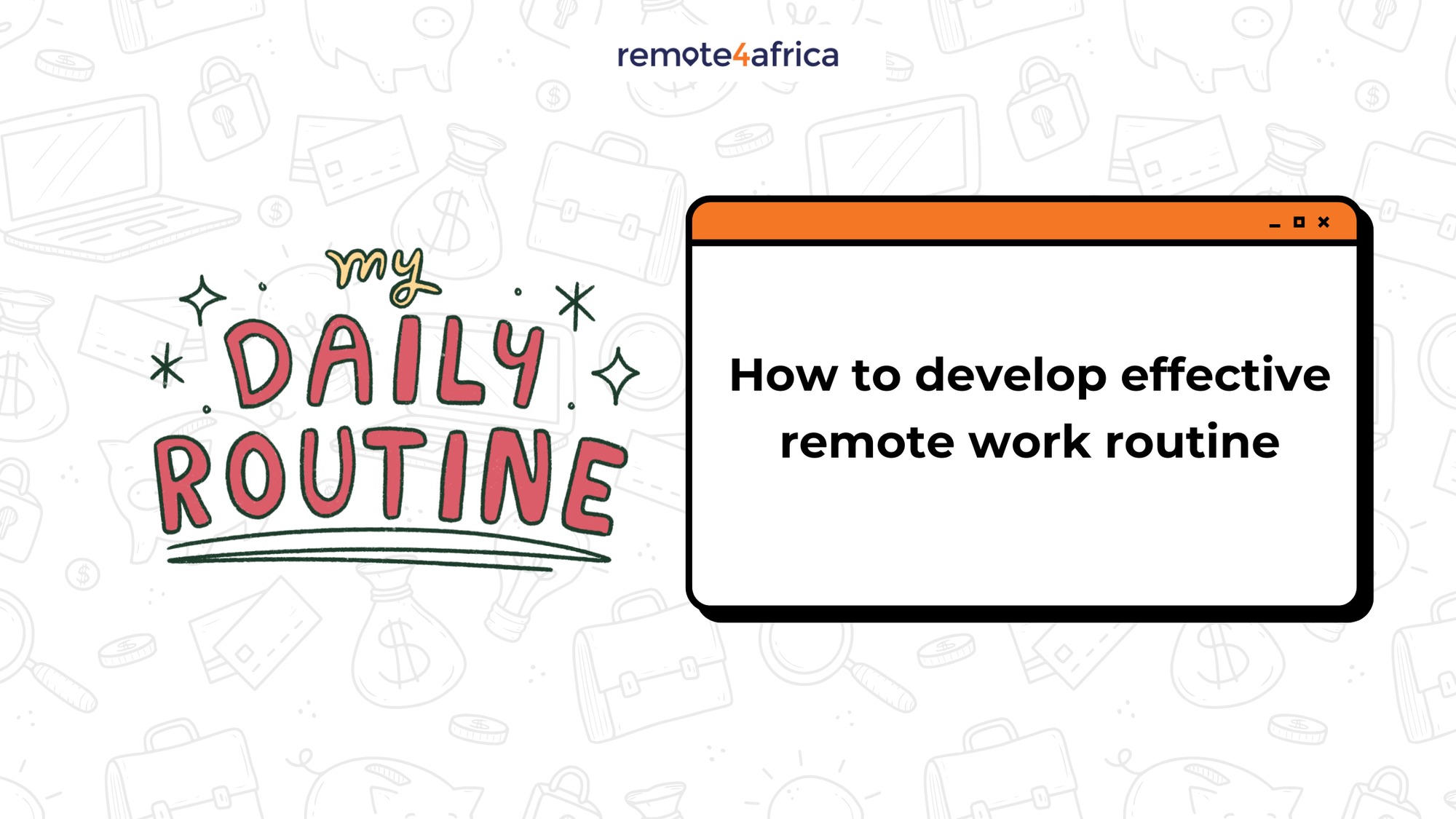How to Develop Effective Remote Work Routine
As a remote worker you are responsible for your productivity. Without a proper remote work routine you might struggle to deliver consistently. So how do you stay productive and focused on the job when working from home?

Lots of people want to work remotely but with remote work comes lots of responsibilities and expectations. Employers expect you will be able to carry our your duties, achieve set goals on your own, even when you work with a team.
To ensure you are productive it helps to develop an effective remote work routine. A structured work routine helps you avoid distractions, improve productivity and maintain a healthy work-life balance.
Find the best remote jobs in Africa
In this article we outline practical steps and tips to help you build a proper, effective remote work routine for yourself.
Challenges of Remote Work Without a Routine
Working remotely sounds flexible and convenient, but without a clear structure, it can quickly become overwhelming. Some common issues include:
- Blurred boundaries between work and personal life.
- Procrastination and home distractions.
- Burnout from working long, irregular hours.
- Poor communication with colleagues and managers.
A routine helps prevent these problems by providing order and discipline.
Steps to Develop an Effective Remote Work Routine
1. Set Clear Work Hours
Just because you work remotely doesn’t mean you should be “always on.” Decide your start and end times (in line with your employer's requirement if you work full time for an employer), and stick to them. If you work freelance share your availability hours with your clients and employers. This helps ensure you are not expected or required to work beyond reasonable time, preventing burnout.
2. Have a Dedicated Workspace
Your environment affects your productivity. Create a workspace that is separate from where you relax. For those living in smaller African apartments, a small desk in a corner or using headphones to block out noise can make a big difference. You don't necessarily need to live in a big house to set up your work area.
3. Prioritize Planning and Scheduling
Start each day with a clear plan. Create a to-do list, schedule tasks on Google Calendar, or use tools like Trello, Notion, or Asana to stay organized. Break tasks into smaller blocks to avoid feeling overwhelmed.
4. Incorporate Breaks and Healthy Habits
Don’t sit glued to your laptop all day. Schedule short breaks to stretch, have a meal, pray, or simply rest your eyes. A healthy body fuels a productive mind.
5. Stay Connected with Colleagues
Remote work should not feel isolating. Schedule check-ins, attend virtual stand-up meetings, and use collaboration tools like Slack, Zoom, or Microsoft Teams to stay engaged.
6. Balance Work and Personal Life
One of the hardest parts of remote work is switching off. Once your work hours are over, log out completely. Avoid answering work emails late at night. Setting boundaries with family and friends is equally important—they should respect that “working from home” is still working.
Additional Practical Tips
Remote work in parts of Africa may come with unique challenges like power outages and unstable internet. To stay consistent:
- Invest in backup internet options.
- Consider a small generator, inverter, or power bank for electricity.
- Explore co-working hubs for stable power and internet when needed.
An effective remote work routine is not about being rigid—it’s about creating structure that allows you to work smarter, not harder. By setting clear work hours, organizing your tasks, maintaining healthy habits, and preparing for possible power and internet realities, you can thrive as a remote professional.
Building this discipline doesn’t just boost productivity—it positions you for long-term success in today’s remote-first job market.
